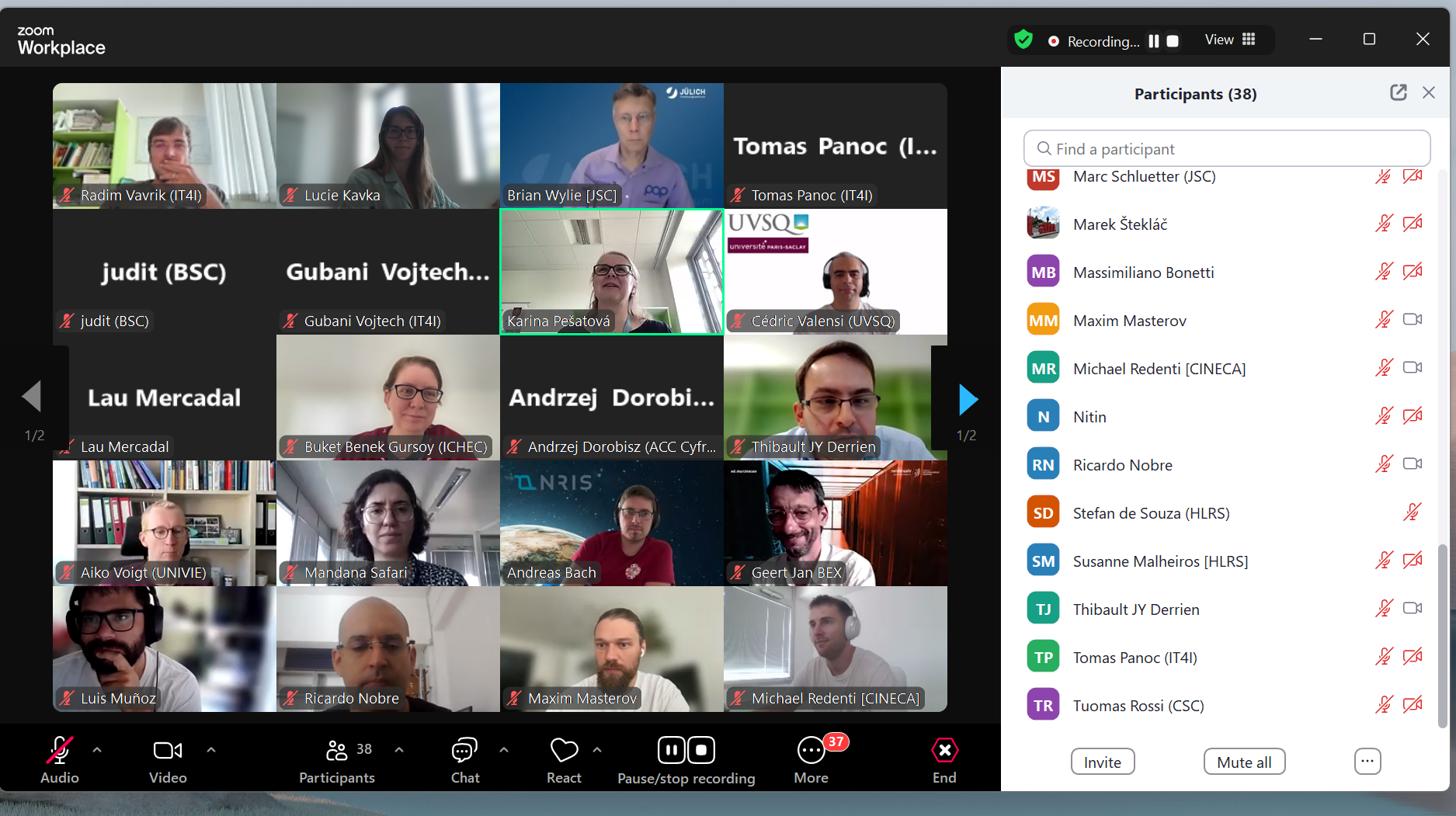POP organised a 3-day virtual training event led by IT4I on the 4th-6th of September 2024 as the 46th VI-HPS Tuning Workshop in the CASTIEL2/EuroCC Training Sprint series in collaboration with the National HPC Competence Centres (NCCs) for Austria, Czech Republic, Hungary, Poland, Slovakia and Slovenia. A total of 60 registrations were received from EuroHPC member nations all over Europe, including 18 from EU-13 countries which tend to be under-represented in HPC training.

The first day of the workshop introduced 32 participants to the POP Centre of Excellence (CoE), detailing its services, methodology, and tools for performance assessments and second-level services. On the second day, the focus shifted to getting started with open-source multi-platform tools for analysing MPI+OpenMP application executions on CPU architectures. Finally, the third day delved into more advanced usage, including analysing application executions on combined CPU and GPU architectures.
This hands-on workshop featured use of Scalasca/Score-P/CUBE/Vampir and Paraver/Extrae/BasicAnalysis/Clustering/Tracking toolsets for both CPUs and GPUs, while also offering an overview of tools provided by POP CoE partners RWTH, UVSQ and INESC-ID. Attendees learnt how to use the POP parallel performance measurement and analysis tools and apply the corresponding methodology to assess execution performance and scaling efficiency of their own parallel application codes in a portable fashion.
12 participants requested and obtained accounts on Karolina universal/CPU and accelerated/GPU partitions to apply POP tools to their application codes (or work through prepared examples that were demonstrated). Executions of application codes from ESiWACE, MaX and Plasma-PEPSC CoEs employing OpenACC and CUDA in combination with MPI were analysed, identifying and quantifying a variety of inefficiencies to be addressed by their developers.
The concluding discussion confirmed participants' strong satisfaction with the workshop, despite the trade-off of its virtual delivery as opposed to in-person coaching, and offered suggestions for upcoming and future training events for other EuroHPC supercomputer systems that will be pursued.
